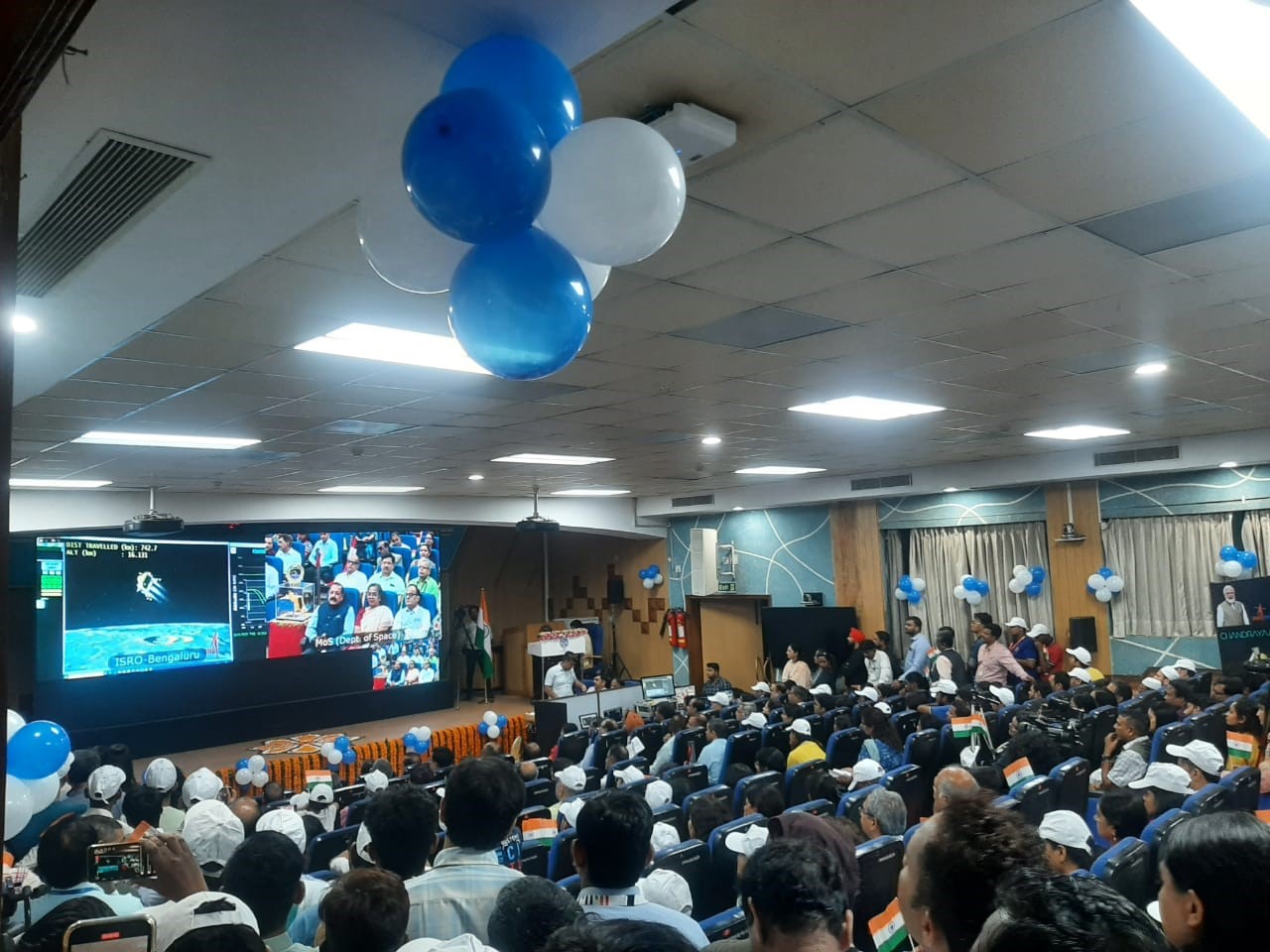In the past, our chats were usually about general things like cricket and politics, whether we were at home or hanging out at tea stalls. But something really exciting happened with the Chandrayaan-3 moon landing that changed the way we think. I was scrolling through social media and noticed that many students and teachers were super excited about it. They were celebrating and dancing with joy because the “Vikram” lander landed successfully on the moon. Just yesterday, two curious people from our community came up to me. They wanted to learn more about Pragyan’s upcoming explorations. What’s even more awesome is that my 100-year-old grandfather and my young niece called me too, wanting to talk about it.
The fact that so many people are getting interested in this is really motivating. This curiosity is a big deal—it’s a sign that more and more people are becoming curious about science. This change reminds us how important it is for scientists to talk to everyone about their work. Right now, we can see that scientific outreach is like a strong bridge. It connects scientists with regular people like us, who might not know a lot about science. It’s like a way for everyone to learn together. Maybe it’s our turn to be role models for the next generations. We can ignite their curiosity and excitement. That means we can explain scientific ideas, tell them about new discoveries, and why these things matter. This is really important because it helps everyone understand and get excited about science. It’s like a special key that unlocks the doors to making science interesting for everyone. Here are some key points highlighting the significance of science outreach:
- Public Understanding: Many scientific concepts can be complex and technical. Through outreach, scientists can explain these concepts in simpler terms, making them accessible to people without a strong scientific background. This promotes a better understanding of scientific principles and developments among the general public.
- Informed Decision-Making: Science often informs important societal decisions, such as policy-making, healthcare choices, and environmental regulations. When the public is well-informed about scientific advancements, they can make more educated decisions that align with evidence-based practices.
- Inspiration and Education: Scientific outreach can inspire young minds to pursue careers in science, technology, engineering, and mathematics (STEM). It showcases the excitement and wonder of scientific discovery, motivating students to explore these fields and contribute to future innovations.
- Building Trust: Openly sharing scientific research and findings fosters trust between scientists and the public. Transparency helps counter misinformation or misconceptions and demonstrates the rigor and integrity of the scientific process.
- Addressing Misinformation: In an era of rapid information sharing, misinformation and pseudoscience can easily spread. I hope you still remember some of the deadly events during the COVID-19 pandemic. Effective scientific outreach can counter false information with accurate, well-supported facts, ensuring that the public has access to reliable sources of knowledge and thus not fall into the trap of misinformation and threaten people’s welfare.
- Cultural and Ethical Implications: Many scientific advancements have cultural, ethical, and societal implications. Engaging in outreach allows scientists to address concerns, facilitate dialogue, and consider diverse perspectives when making decisions about the application of their research.
- Lifelong Learning: Scientific outreach encourages a culture of continuous learning. It empowers individuals to stay updated on new discoveries, technological advancements, and changes in various scientific fields.
- Community Building: Outreach initiatives can create a sense of community among scientists, educators, policymakers, and the general public. Collaborative efforts can lead to a more cohesive understanding of complex issues.
- Global Challenges: Many of the challenges humanity faces, such as climate change, pandemics, and resource scarcity, require collective understanding and action. Scientific outreach can facilitate conversations and collaborations on these global issues.
So, to wrap it up, scientific outreach is like a bridge between scientists and everyone else. It’s important to not just be scientists, but also influencers who encourage the younger generation to explore science. The outreach should make sure that science information is shared, understood, and liked by people. This all helps society become smarter, more curious, and more involved.

